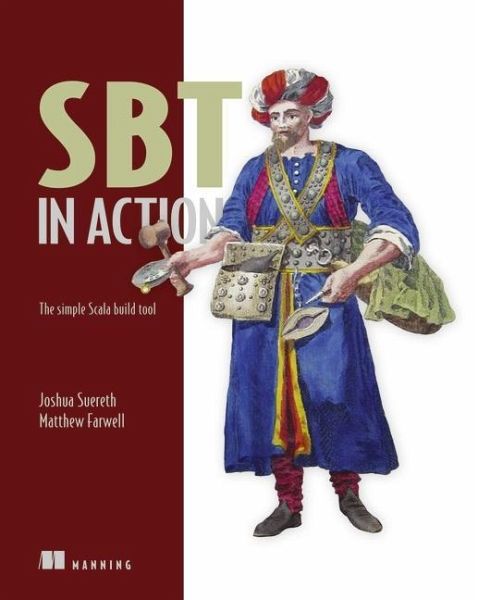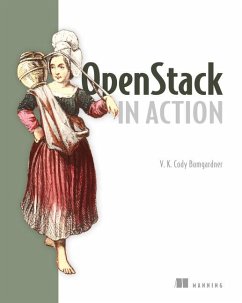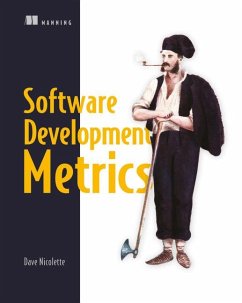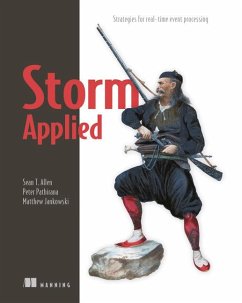
SBT in Action
The Simple Scala Build Tool

PAYBACK Punkte
21 °P sammeln!
RETAIL SELLING POINTS
Comprehensive and detailed guide
Fills in the gaps of information on sbt
Shows how to tame unwieldy complex builds
AUDIENCE
This book assumes readers are comfortable reading and writing Scala code. No experience with sbt required.
Product Description
DESCRIPTION
Simple Build Tool: sbt. The idea of a high quality build tool for Scala is indeed simple, but sbt itself is richly-featured and powerful. Documentation for sbt is sparse, and the blogs, tutorials, and other bits scattered across the web demand a comprehensive, accurate picture of how to build Scala projects effectively and efficiently. This book will help transform ugly, complex builds into a streamlined, automated, and repeatable process.
SBT in Action is first and foremost a tutorial about effectively building Scala projects. It introduces the sbt tool with a simple project that establishes the fundamentals of running commands and tasks. Next, it shows how to use the peripheral libraries in sbt to make common tasks simpler. This includes an I/O library to deal with files and how to parse user input in a meaningful fashion. Finally, it covers how to deploy software effectively.
RETAIL SELLING POINTS
Comprehensive and detailed guide
Fills in the gaps of information on sbt
Shows how to tame unwieldy complex builds
AUDIENCE
This book assumes readers are comfortable reading and writing Scala code. No experience with sbt required.
ABOUT THE TECHNOLOGY
Known as the de-facto Scala build tool, sbt is used to build other pieces of software. It uses Scala as its lingua franca, which means that all settings and files are typesafe by default, providing a level of safety in builds that is uncommon.
Comprehensive and detailed guide
Fills in the gaps of information on sbt
Shows how to tame unwieldy complex builds
AUDIENCE
This book assumes readers are comfortable reading and writing Scala code. No experience with sbt required.
Product Description
DESCRIPTION
Simple Build Tool: sbt. The idea of a high quality build tool for Scala is indeed simple, but sbt itself is richly-featured and powerful. Documentation for sbt is sparse, and the blogs, tutorials, and other bits scattered across the web demand a comprehensive, accurate picture of how to build Scala projects effectively and efficiently. This book will help transform ugly, complex builds into a streamlined, automated, and repeatable process.
SBT in Action is first and foremost a tutorial about effectively building Scala projects. It introduces the sbt tool with a simple project that establishes the fundamentals of running commands and tasks. Next, it shows how to use the peripheral libraries in sbt to make common tasks simpler. This includes an I/O library to deal with files and how to parse user input in a meaningful fashion. Finally, it covers how to deploy software effectively.
RETAIL SELLING POINTS
Comprehensive and detailed guide
Fills in the gaps of information on sbt
Shows how to tame unwieldy complex builds
AUDIENCE
This book assumes readers are comfortable reading and writing Scala code. No experience with sbt required.
ABOUT THE TECHNOLOGY
Known as the de-facto Scala build tool, sbt is used to build other pieces of software. It uses Scala as its lingua franca, which means that all settings and files are typesafe by default, providing a level of safety in builds that is uncommon.
Summary
A tutorial about effectively building Scala projects, sbt in Action introduces the sbt tool with a simple project that establishes the fundamentals of running commands and tasks. Next, it shows you how to use the peripheral libraries in sbt to make common tasks simpler. Finally, it covers how to deploy software effectively. You'll learn to appreciate how sbt improves the process of developing software, not just running builds.
Purchase of the print book includes a free eBook in PDF, Kindle, and ePub formats from Manning Publications.
About the Technology
sbt is a build tool native to Scala that can transform any build scenario into a streamlined, automated, and repeatable process. Its interactive shell lets you customize your builds on the fly, and with sbt's unique incremental compilation feature, you can update only the parts of your project that change, without having to rebuild everything. Mastering sbt, along with the right patterns and best practices, is guaranteed to save you time and trouble on every project.
About the Book
sbt in Action, first and foremost, teaches you how to build Scala projects effectively. It introduces the sbt tool with a simple project that establishes the fundamentals of running commands and tasks. Next, it shows you how to use the peripheral libraries in sbt to make common tasks simpler. Along the way, you'll work through real projects that demonstrate how to build and deploy your projects regardless of development methodology or process.
What's Inside
About the Reader
Readers should be comfortable reading Scala code. No experience with sbt required.
About the Authors
Josh Suereth is an engineer at Typesafe and the author of Manning's Scala in Depth. Matthew Farwell is a senior developer and the author of the Scalastyle style checker.Table of Contents
A tutorial about effectively building Scala projects, sbt in Action introduces the sbt tool with a simple project that establishes the fundamentals of running commands and tasks. Next, it shows you how to use the peripheral libraries in sbt to make common tasks simpler. Finally, it covers how to deploy software effectively. You'll learn to appreciate how sbt improves the process of developing software, not just running builds.
Purchase of the print book includes a free eBook in PDF, Kindle, and ePub formats from Manning Publications.
About the Technology
sbt is a build tool native to Scala that can transform any build scenario into a streamlined, automated, and repeatable process. Its interactive shell lets you customize your builds on the fly, and with sbt's unique incremental compilation feature, you can update only the parts of your project that change, without having to rebuild everything. Mastering sbt, along with the right patterns and best practices, is guaranteed to save you time and trouble on every project.
About the Book
sbt in Action, first and foremost, teaches you how to build Scala projects effectively. It introduces the sbt tool with a simple project that establishes the fundamentals of running commands and tasks. Next, it shows you how to use the peripheral libraries in sbt to make common tasks simpler. Along the way, you'll work through real projects that demonstrate how to build and deploy your projects regardless of development methodology or process.
What's Inside
- Master sbt's loosely coupled libraries
- Effectively manage dependencies
- Automate and simplify your builds
- Customize builds and tasks
About the Reader
Readers should be comfortable reading Scala code. No experience with sbt required.
About the Authors
Josh Suereth is an engineer at Typesafe and the author of Manning's Scala in Depth. Matthew Farwell is a senior developer and the author of the Scalastyle style checker.Table of Contents
- PART 1 WHY SBT?
- Why sbt?
- Getting started PART 2 UNDERSTANDING SBT'S CORE CONCEPTS
- Core concepts
- The default build PART 3 WORKING WITH SBT
- Testing
- The IO and Process libraries
- Accepting user input
- Using plugins and external libraries
- Debugging your build PART 4 EXTENDING SBT
- Automating workflows with commands
- Defining a plugin PART 5 DEPLOYING YOUR PROJECTS
- Distributing your projects













